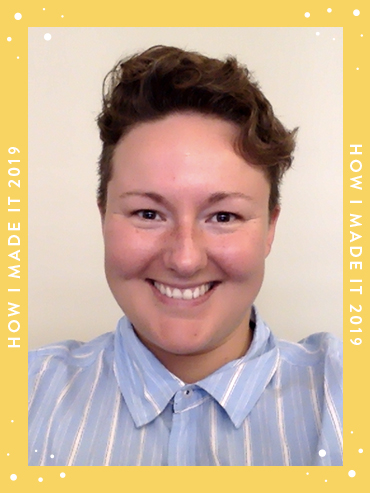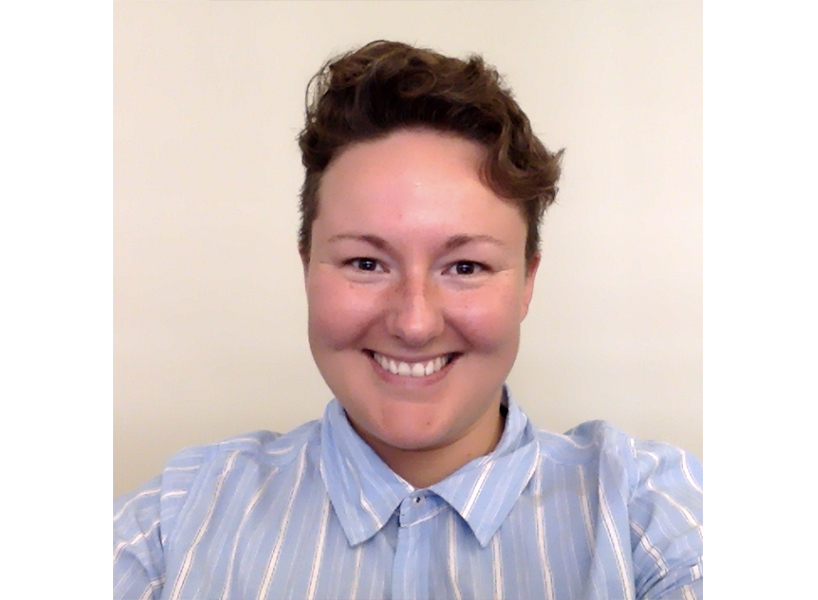How This Opera Singer Made the Unexpected Move to Web Design
R.C. Woodmass on how they made it happen


Name: R.C. Woodmass
Job title: Founder, Queerit
Age: 33
From: Steinbach, Man.
Currently lives in: Montreal
Education: Bachelor of music in voice performance, Canadian Mennonite University; Master’s in opera performance and Artist Diploma in opera performance, McGill University
First job out of school: Opera singer
Not many people with three (!) opera-singing degrees can say they have a website-design company, but R.C. Woodmass is one of them—maybe the only one. When they were growing up in Manitoba, they were always good at math but tech wasn’t a well-known field in their circles, so they decided to follow their passion and study opera instead. Once they started performing, they noticed issues with the websites of the companies they worked with. “I would be like ‘Your application process is horrible—let me optimize this for you.’ Or ‘Your website is awful—let me tweak it for you.’” It all snowballed from there.
Now Woodmass runs their own web-design company, Queerit, which offers “feminist and anticapitalist web design by and for queers (and those who love us),” according to its website. Web development and design combine some of their strongest skills: The development aspect is mathematical, the client-facing aspect makes use of their people skills and the design aspect lets them tap into art and aesthetics. But what Woodmass ultimately loves about the job is finding solutions to clients’ issues using tech: The company identifies a specific queer user persona, figures out what they need and designs accordingly.
Woodmass felt lonely in Montreal when they were entering the tech scene, but they found a welcoming presence in the city’s queer tech community. They came out as non-binary during this time, and queer tech communities have been instrumental in their growth. “Those are the people who have inspired me to be who I really am,” they say. “We rally together, we support each other and we grow because of that.” The Montreal chapter of Lesbians Who Tech especially influenced Woodmass’ idea of who belongs in tech, and they even co-led the chapter for a few years.
Due to their more conservative upbringing, Woodmass had to unlearn the idea that white, cisgender straight men were “meant” to be in tech and that anyone else would be pushed aside. “It is a reality, but that doesn’t mean that I have to engage in that reality,” they say. It took time to realize that they too belonged in the industry. Being non-binary in tech comes with unique challenges, and Woodmass has noticed that they’re not taken as seriously as they were when they identified as a cis woman.
They take issue with the “women in tech” movement, which reminds them of the suffragette movement in terms of its exclusion. “If we’re actually going to argue for gender diversity in tech but there are no non-binary people or trans women or two-spirit people, then it’s not diverse,” they say. Among non-binary people, Woodmass says they have it “pretty easy” compared to peers who are people of colour. “I see very, very, very few non-binary or two-spirit people of colour in tech. And I know they exist.”
To effect change, Woodmass thinks companies need to go beyond trying to appear diverse. “They’ll only do it to the point where it doesn’t challenge their revenue and status quo,” they say. Realistically, the status quo has to change and revenues will have to temporarily suffer if tech is to become equitable. “I’d like to see more of a willingness for companies to fall apart a little, because the structures do need to change.”
FLARE Archived Content
To see the original article, search for it on the Flare archive: https://flare.fashionmagazine.com








